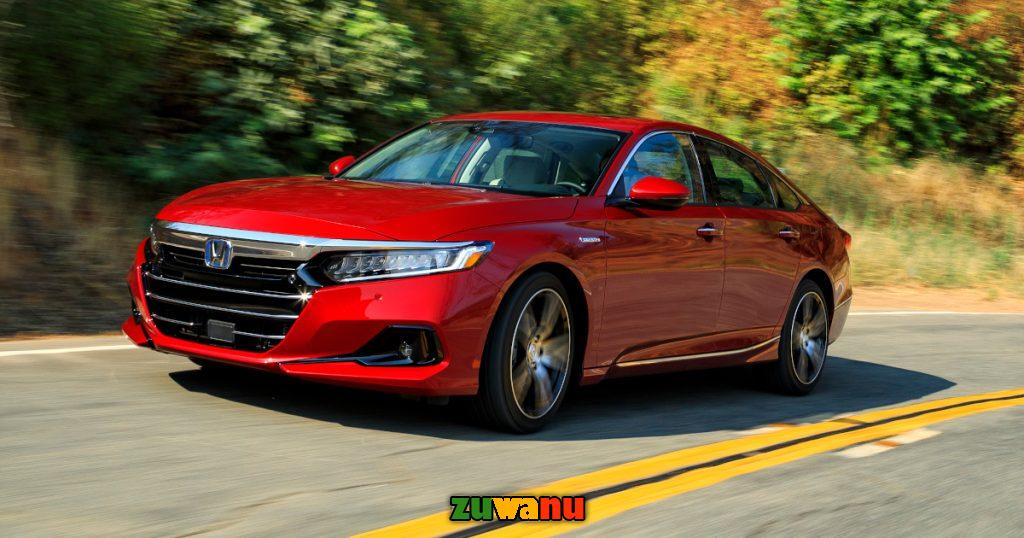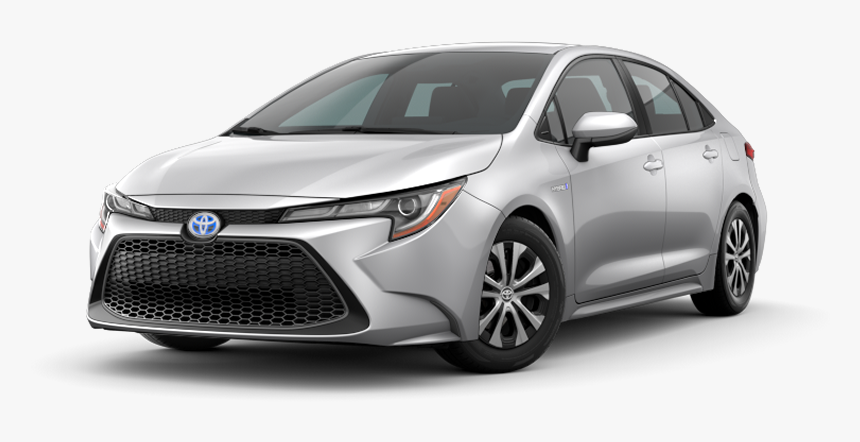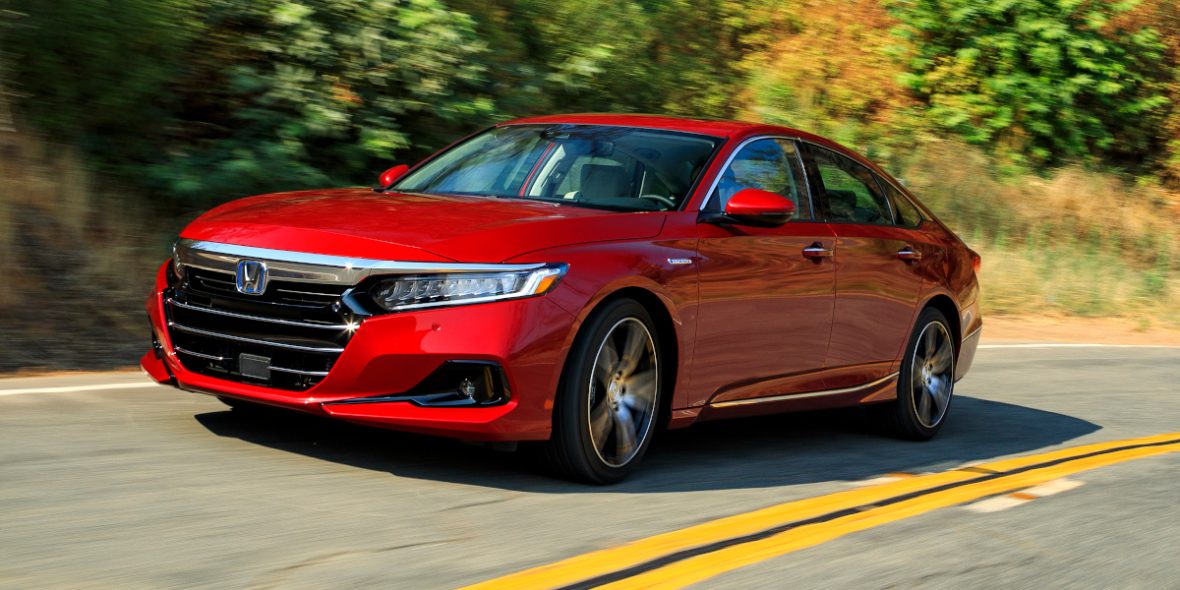Exploring Sedan Cars: A Comprehensive Guide to Sedans, Their Key Features, and Top Choices
Table of Contents

Introduction (Sedan Cars)
Sedan cars, a timeless and popular vehicle category, have been a staple on the roads for over a century. They are known for their classic design, comfortable interiors, and versatile performance. In this extensive article, we will delve into the world of sedan cars, starting with a fundamental definition, differences between sedans and SUVs, the ongoing debate of which is better, and the intriguing history behind the term “sedan.” Furthermore, we’ll explore the standout features that make sedans a compelling choice for various consumers and wrap up with a list of some of the best sedan cars available in the market today.
What is a Sedan Car?
A sedan, or saloon, is a passenger car with a conventional configuration that typically features four doors, a separate trunk for cargo, and a closed roof. Sedans are known for their uncomplicated yet stylish design, making them one of the most popular choices in the automotive world. The distinguishing characteristics of sedans include:
- Body Style: Sedans are easily recognizable due to their body style. They have four doors, with two on each side, making entry and exit for both front and rear passengers more accessible than some other vehicle types.
- Enclosed Trunk: A sedan’s trunk is usually separate from the passenger cabin, offering a dedicated storage space for luggage and cargo. This design helps maintain the sedan’s clean and streamlined look.
- Roof Design: Sedans have a closed roof that extends from the windshield to the rear of the vehicle. This design provides a level of interior protection from the elements and offers a quieter and more comfortable ride.
- Passenger Seating: Most sedans are designed to accommodate five passengers – two in the front and three in the rear. The rear seat offers ample space for passengers, making it a suitable choice for families and professionals.
- Suspension and Ride: Sedans are designed for a comfortable and smooth ride. They often feature softer suspension systems, which enhance passenger comfort on a variety of road surfaces.
- Fuel Efficiency: Sedans typically offer excellent fuel efficiency due to their streamlined design and lower weight compared to larger vehicles like SUVs and trucks.
BMW X4 price in Nigeria: complete review 2023
Differences between Sedan and SUV
Sedan cars and SUVs (Sports Utility Vehicles) are two popular categories in the automotive world, each with its own set of characteristics and advantages. Understanding the differences between these two can help prospective buyers make an informed decision based on their specific needs and preferences.
- Body Style:
- Sedan: As mentioned earlier, sedans have a traditional four-door design with a separate trunk. They prioritize a sleek and compact appearance.
- SUV: SUVs typically have a more prominent and boxy body style with higher ground clearance. They are often designed to handle off-road terrain and have a more rugged appearance.
- Seating Capacity:
- Sedan: Most sedans are designed to seat five passengers comfortably. Some larger sedans may have a six-passenger capacity but are less common.
- SUV: SUVs come in various sizes, offering seating for five to eight passengers, depending on the model. They are a better choice for larger families or those who frequently transport a group of people.
- Cargo Space:
- Sedan: Sedans have a separate trunk for cargo, but the space is limited compared to SUVs. The trunk is typically more suitable for groceries, luggage, or a few larger items.
- SUV: SUVs offer significantly more cargo space, especially when the rear seats are folded down. This makes them ideal for carrying larger items, sports equipment, or even camping gear.
- Off-Road Capability:
- Sedan: Sedans are not built for off-road adventures. They are best suited for paved roads and urban environments.
- SUV: SUVs often come with all-wheel drive or four-wheel drive options, making them suitable for off-road use and adverse weather conditions.
- Fuel Efficiency:
- Sedan: Sedans are generally more fuel-efficient than SUVs due to their compact and streamlined design. They offer better gas mileage, making them a preferred choice for commuting and long-distance driving.
- SUV: SUVs tend to consume more fuel than sedans due to their larger size and heavier weight. However, advancements in technology have led to more fuel-efficient SUV models.
- Ride Height:
- Sedan: Sedans have a lower ride height, which can provide a smoother and more car-like driving experience. This lower profile also contributes to their fuel efficiency.
- SUV: SUVs have a higher ride height, which offers a better view of the road and can provide a sense of security. However, it may lead to a less agile and sporty driving experience.
Which is Better: Sedan or SUV?
The choice between a sedan and an SUV depends on your specific needs, preferences, and lifestyle. There is no definitive answer to which is better, as both vehicle types have their own advantages. To determine which one is more suitable for you, consider the following factors:
- Passenger Capacity: If you regularly need to transport a large number of passengers, an SUV is a better choice due to its greater seating capacity.
- Cargo Space: If you require ample cargo space for activities like camping, sports, or frequent trips, an SUV provides more flexibility for carrying gear and luggage.
- Fuel Efficiency: If you prioritize fuel efficiency and plan to use your vehicle for daily commuting or long-distance travel, a sedan is the more economical choice.
- Off-Road Capability: If you live in an area with challenging weather conditions or frequently venture off-road, an SUV with all-wheel drive or four-wheel drive may be the more suitable option.
- Ride Height and Handling: Consider your preference for ride height and handling. If you enjoy a higher driving position and a more commanding view of the road, an SUV might be preferable. However, if you prefer a lower ride height and a more agile driving experience, a sedan is the way to go.
- Budget: Budget is a significant factor in your decision. Generally, sedans tend to be more budget-friendly both in terms of purchase price and ongoing fuel costs. SUVs can be more expensive, particularly if you opt for larger or more feature-packed models.
- Aesthetics: Your personal style and aesthetic preferences may also influence your choice. Sedans are often associated with elegance and a classic look, while SUVs have a more rugged and adventurous appearance.
- Environmental Impact: If you are environmentally conscious, you might consider the environmental impact of your choice. Sedans are typically more fuel-efficient, which can lead to lower carbon emissions.
- Resale Value: Resale value is another consideration. Historically, sedans tend to depreciate less quickly than SUVs, so you might get more value when you decide to sell or trade in your vehicle.
- Driving Experience: The driving experience you prefer is vital. Sedans offer a more car-like and sporty driving experience, while SUVs provide a more commanding and substantial presence on the road.
In summary, the decision between a sedan and an SUV comes down to your specific needs, lifestyle, and preferences. Both have their advantages, and the best choice for you depends on what you prioritize in a
vehicle.
Why is it Called a Sedan?
The term “sedan” has an interesting history that dates back to the early days of automobiles. The name has its origins in a historical reference to a type of enclosed carriage, known as a “sedan chair” or “sedan carriage,” which was used for carrying passengers in the 17th and 18th centuries.
A sedan chair was a two-person enclosed chair that was carried by porters on long poles. It provided a form of comfortable and enclosed transportation for individuals, shielding them from the weather and dirt on the streets. This type of vehicle was primarily used by the wealthy and aristocracy.
As the automotive industry began to develop, car manufacturers aimed to provide a more comfortable and enclosed form of transportation for the general public. The concept of an enclosed passenger compartment in an automobile was seen as a more accessible and practical alternative to the horse-drawn sedan chairs.
In the early 20th century, the term “sedan” was adopted to describe automobiles with an enclosed passenger compartment and a separate enclosed trunk for luggage or cargo. This design was in stark contrast to earlier automobile models that often had open-air passenger compartments and exposed chassis.
Over time, the term “sedan” became the standard way to describe these passenger vehicles, and it has been used ever since. While the design and features of sedans have evolved significantly, the term’s historical connection to enclosed transportation remains a unique part of automotive history.
Key Features of Sedan Cars

Sedan cars have evolved to offer a wide range of features to cater to diverse customer preferences. Here are some of the key features that make sedans a popular choice:
- Comfortable Interior: Sedans are known for their spacious and comfortable interiors, designed to provide an enjoyable driving experience. They often feature high-quality materials and ample legroom for both front and rear passengers.
- Safety Features: Many sedans come equipped with advanced safety features, such as adaptive cruise control, lane-keeping assist, automatic emergency braking, and blind-spot monitoring. These features enhance driver and passenger safety.
- Fuel Efficiency: Sedans are typically more fuel-efficient than larger vehicles, thanks to their lightweight construction and aerodynamic designs. This makes them an economical choice for daily commuting and long-distance travel.
- Handling and Performance: Sedans are known for their excellent handling and on-road performance. They offer a smooth and stable ride, making them a pleasure to drive in various conditions.
- Technology and Connectivity: Most modern sedans are equipped with advanced infotainment systems, touchscreen displays, smartphone integration, and navigation options, ensuring that you stay connected while on the road.
- Quality and Elegance: Sedans often boast a high level of craftsmanship and attention to detail. They are associated with elegance and sophistication, making them an ideal choice for professionals and those who appreciate fine design.
- Trunk Space: While not as spacious as an SUV’s cargo area, sedan trunks offer ample space for groceries, luggage, and everyday items. Many sedans have folding rear seats to extend cargo capacity further.
- Wide Range of Models: There is a wide variety of sedan models to choose from, including compact sedans, midsize sedans, and luxury sedans. This diversity ensures that there is a sedan to suit almost any budget or preference.
- Customization Options: Sedan manufacturers offer various trim levels and options, allowing buyers to customize their vehicle to suit their specific needs and tastes. This includes choices in engine types, transmission, interior materials, and exterior colors.
- Resale Value: Sedans tend to hold their value well, making them a solid investment. When properly maintained, they can offer good resale or trade-in value when it comes time to upgrade.
Best Sedan Cars to Buy
Now that we’ve explored the defining characteristics of sedan cars and their advantages, let’s take a look at some of the best sedan models available in the market. Keep in mind that the “best” sedan for you will depend on your specific requirements, budget, and personal preferences. Here are some notable sedan options, covering a range of categories:
- Toyota Camry: The Toyota Camry is a top contender in the midsize sedan category, known for its reliability, fuel efficiency, and comfortable ride. It offers a choice of engines, including a hybrid option for those seeking superior fuel economy.
- Honda Accord: The Honda Accord is another midsize sedan that consistently receives high praise for its well-rounded attributes. It provides a comfortable interior, impressive handling, and a range of engine choices, including a fuel-efficient hybrid model.
- Volkswagen Passat: The Volkswagen Passat is a spacious and refined midsize sedan with a focus on European-style comfort. It’s a great option for those who appreciate a high-quality interior.
- Nissan Altima: The Nissan Altima stands out with its advanced driver-assistance features and a comfortable ride. The available all-wheel drive sets it apart from many competitors in the midsize sedan segment.
- Mazda6: The Mazda6 is often praised for its elegant design, responsive handling, and upscale interior. It offers a dynamic and engaging driving experience, which sets it apart in the midsize sedan category.
- Hyundai Sonata: The Hyundai Sonata offers excellent value, with a feature-rich interior and a user-friendly infotainment system. It also comes in hybrid and plug-in hybrid variants for those seeking improved fuel efficiency.
- Ford Fusion: The Ford Fusion is a versatile midsize sedan available with multiple engine options, including gas, hybrid, and plug-in hybrid powertrains. It provides a comfortable and spacious cabin.
- Chevrolet Malibu: The Chevrolet Malibu is a family-friendly midsize sedan known for its ample passenger space and easy-to-use infotainment system. It offers a smooth and comfortable ride.
- BMW 3 Series: For those in search of a luxury sedan, the BMW 3 Series is a standout choice. It’s celebrated for its engaging driving dynamics, upscale interior, and advanced technology features.
- Mercedes-Benz E-Class: The Mercedes-Benz E-Class is another luxury sedan that combines elegance, performance, and advanced technology. It’s available in a variety of body styles, including sedan, coupe, and convertible.
- Audi A4: The Audi A4 is known for its high-quality interior, engaging handling, and a user-friendly infotainment system. It’s a well-rounded luxury sedan that appeals to driving enthusiasts.
- Tesla Model 3: The Tesla Model 3 is an all-electric sedan known for its impressive range, cutting-edge technology, and sleek design. It has gained popularity in the electric vehicle market.
- Lexus ES: The Lexus ES is a luxury sedan that focuses on a smooth and comfortable ride, along with a quiet interior. It offers a range of features and optional upgrades for a personalized driving experience.
- Volvo S60: The Volvo S60 is a luxury sedan that places a strong emphasis on safety, with a comprehensive suite of advanced driver-assistance features. It also boasts a high-quality interior and a comfortable ride.
- Genesis G80: The Genesis G80 is a luxury sedan that offers a blend of value and quality. It provides a well-appointed interior, advanced technology, and a refined driving experience.
These are just a few examples of the best sedan cars in different categories
, ranging from budget-friendly options to luxury models. When selecting a sedan, it’s essential to consider your priorities, such as size, performance, fuel efficiency, and technology features, to find the model that best suits your needs.
Conclusion
Sedan cars have a rich history and continue to be a popular choice for a wide range of consumers. Their timeless design, comfortable interiors, and versatile performance make them a compelling option in the automotive market. While SUVs have gained popularity, sedans remain a practical and stylish choice for daily commuting, family transport, and long-distance travel.
The choice between a sedan and an SUV ultimately depends on your specific requirements and personal preferences. Sedans offer a more compact and fuel-efficient option, while SUVs provide greater seating capacity and cargo space. Your lifestyle, budget, and driving preferences should guide your decision.
The term “sedan” has a historical connection to enclosed transportation, dating back to the use of sedan chairs by the aristocracy in the 17th and 18th centuries. This historical reference eventually led to the adoption of the term in the automotive world to describe vehicles with enclosed passenger compartments and separate trunks.
When considering a sedan, it’s important to look for key features such as a comfortable interior, advanced safety features, fuel efficiency, and handling. Additionally, there is a wide range of sedan models available, from compact to luxury, ensuring that there is a sedan to suit a variety of tastes and budgets.
As the automotive industry continues to evolve, sedans remain a relevant and appealing choice for a diverse array of drivers. Whether you prioritize efficiency, style, or comfort, there’s a sedan that can meet your specific needs. So, as you explore the world of sedans, keep in mind that these versatile vehicles have a long and storied history, and their future remains promising as they adapt to changing automotive trends and technologies.

